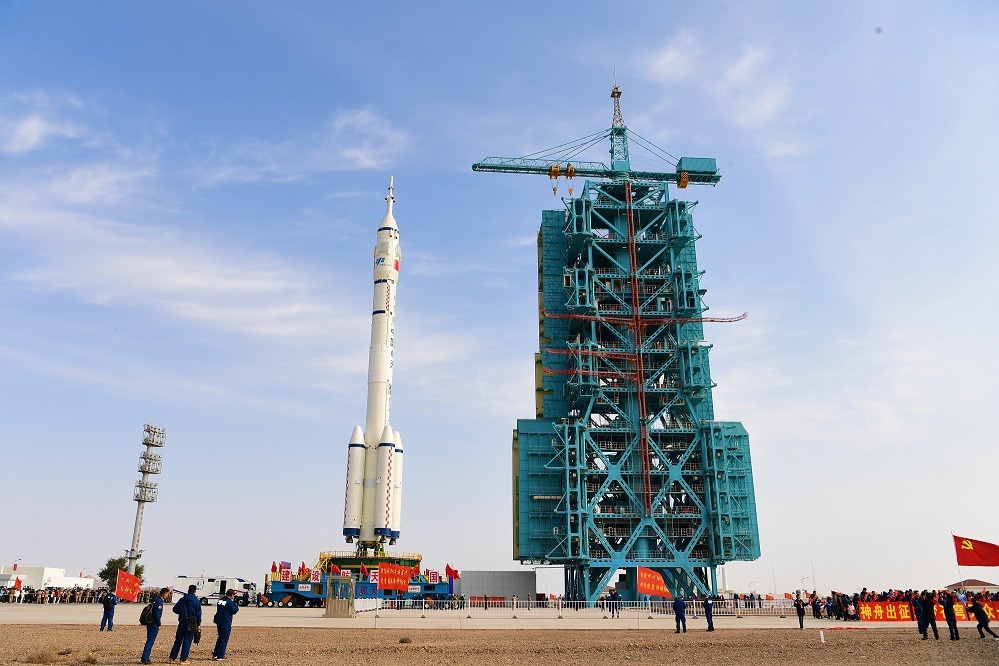Smart pig farming helps bring home the bacon
By ZHOU HUIYING in Harbin | China Daily | Updated: 2024-11-27 10:07
After eight years of research, a team led by Cang Yan, Chen Chunyu and Qiao Yulong from the college of information and communication engineering at Harbin Engineering University in Heilongjiang province has successfully developed a series of intelligent pig farming robots.
The robots can monitor the growth status of pigs in real time through a mobile app, providing scientific guidance for breeding and raising the animals.
Their scientific and technological achievements have been applied in four smart farming-related listed companies, as well as five centrally-administered State-owned enterprises and small and medium-sized firms, with an expected economic benefit of over 100 million yuan ($13.78 million).
In early 2016, a friend of Chen showed him a short video about intelligent pig farming technology overseas.
"In the video, the foreign farmers could scan and instantly obtain the weight and quantity of pigs via intelligent cameras, enabling real-time monitoring of pig growth," said Chen. "It was like being able to tell a person's weight with just a glance, which sounded a bit unimaginable."
The short video greatly aroused his interest.
After that year's spring semester began, Chen invited Cang and Qiao, who specialize in image processing research, to approach the idea with a trial-and-error attitude.
They used a 3D camera to capture images of two differently sized crocodile models and, after analysis using deep learning methods, were pleasantly surprised to find that they could identify the size of the reptiles.
Although there were significant discrepancies in weight measurement, they saw the power of deep learning potential in intelligent robots.
"Through deep learning, intelligent robots can continuously grow like humans," said Chen. "We believed that by constantly inputting a large amount of pig growth data and refining the deep learning methods, we could definitely achieve the goal of intelligent pig farming."
In 2017, the team began to conduct small-scale experiments and data collection at pig farms in Beijing and Jilin province.
"We achieved technological breakthroughs in remote data transmission, massive data storage, cleaning and other information collection processes. We could remotely collect and analyze data on pig growth in Harbin. Differences in the forms of pigs' lives can lead to significant differences in identification results, and different postures such as standing and lying down can result in different weights captured and analyzed by the camera," she said.
Over the past few years, the team has overcome challenges in flexible nonrigid body measurements and dense small target recognition.
In 2020, the team collaborated with Beijing Focused Loong Technology Co Ltd, an innovative firm focused on the digitalization of the livestock industry, to develop their first intelligent inspection robot named Farm Watcher, that can accurately identify the number of pigs and the weight of each pig at a glance in complex environments.
"By simply using a mobile app every day, the farmers can see the growth curve of pigs in a pen and accurately track the weight changes of each pig, helping the farmers promptly determine whether pigs should be sent to market, whether they are sick, and their daily feed intake, thus truly achieving intelligent pig farming. To accurately assess the weight, physical condition, growth and development parameters of pigs, as well as production parameters such as the number of livestock in a farm through noncontact means, it ultimately boils down to breakthroughs in basic scientific research," Cang said.
"So far, we have sold over 6,000 intelligent farming robots, including intelligent inspection robots and pig vending machines, to different regions across China, with a revenue of 200 million yuan," said Gao Yanhong, the company's chief operating officer. "We are also actively expanding overseas markets and have successfully implemented projects in countries and regions such as Vietnam, Japan, Europe and the United States."
In addition, the team is also focusing on research on fundamental scientific issues such as the strong dependence of artificial intelligence methods on data and exploring the construction of universal large language models for intelligent farming to support the development of new quality agricultural productivity.
"We will continue to strengthen technological innovation and contribute our strength to the high-quality development of modern agriculture in Heilongjiang," Cang added.
- Door opened wider for foreign-invested businesses
- First prefabricated substation in Gansu province has been commissioned and put into operation
- Shandong bolsters innovations to up high-quality development
- What to expect from upcoming supply chain expo in Beijing
- Sino-Moroccan ENT training fosters advanced surgical expertise
























